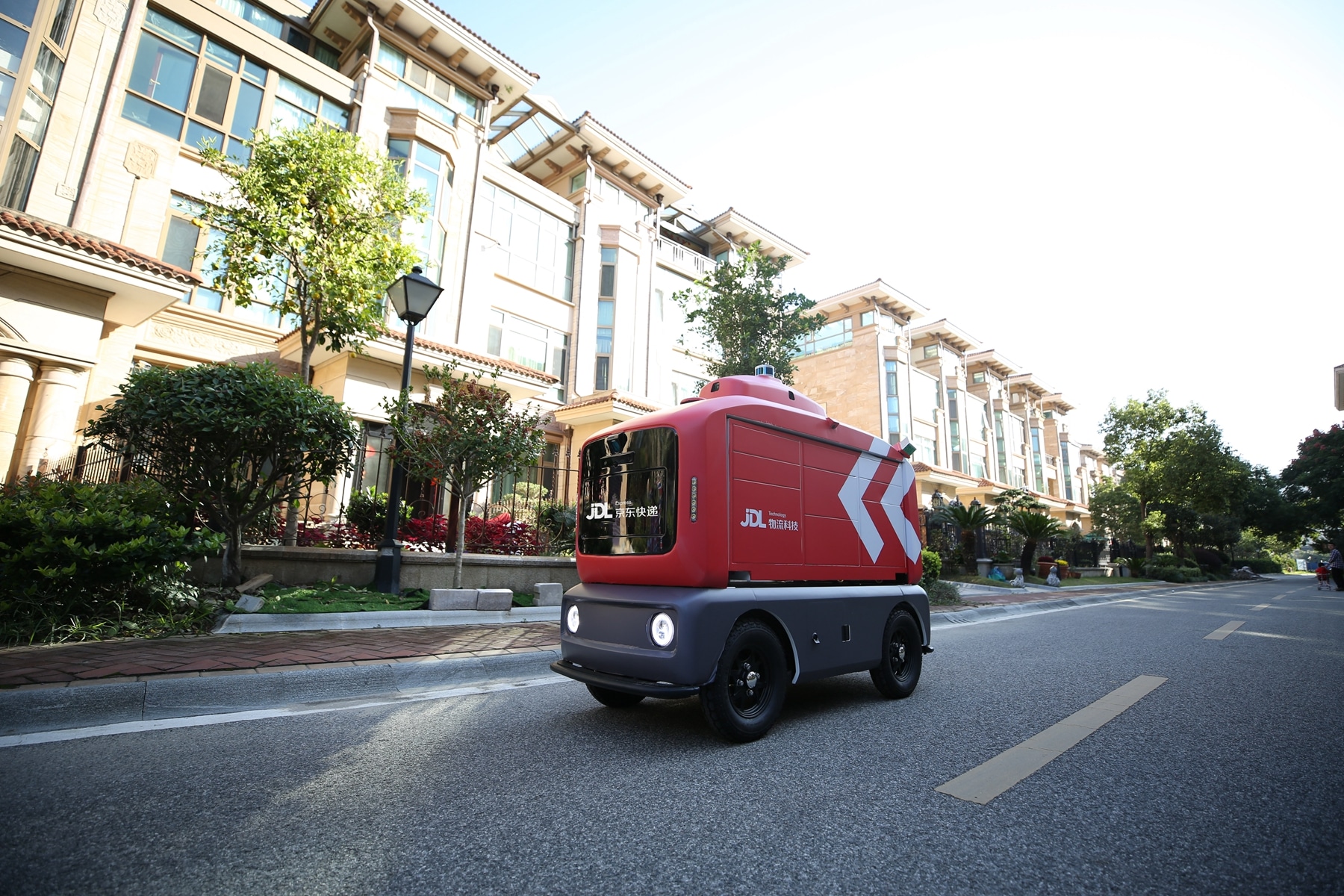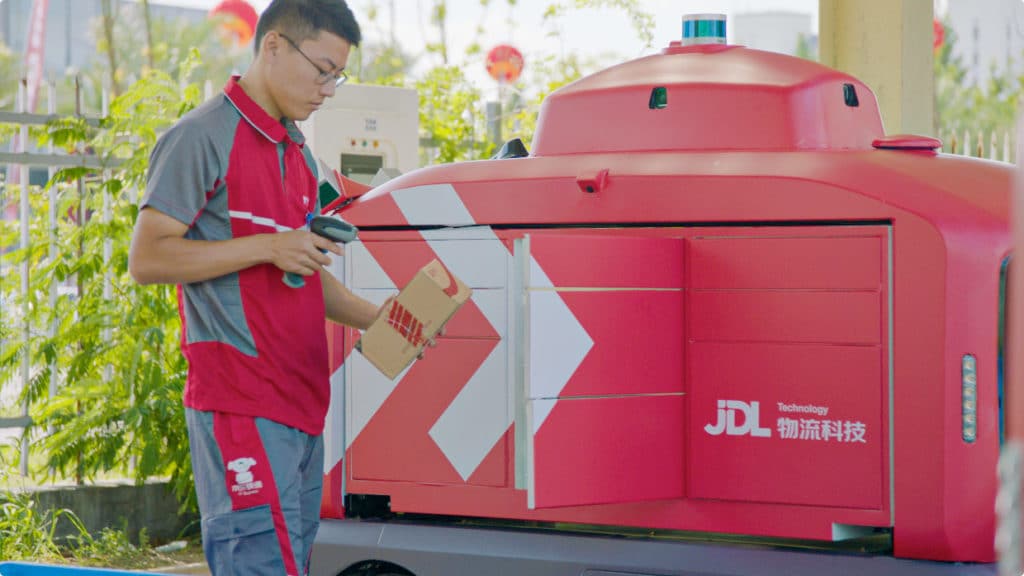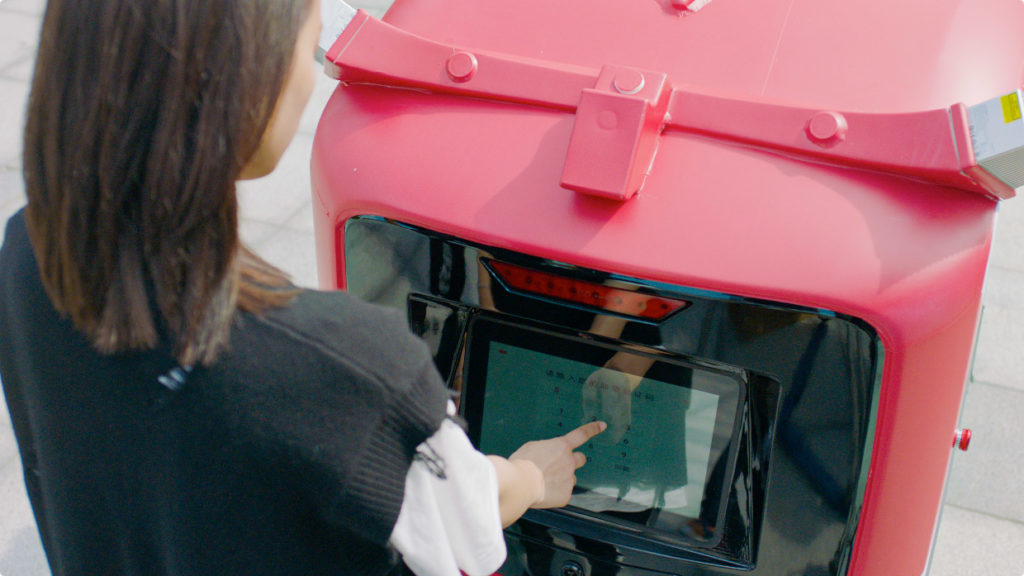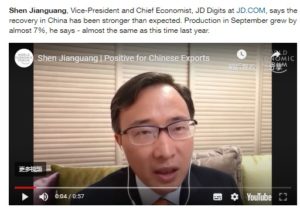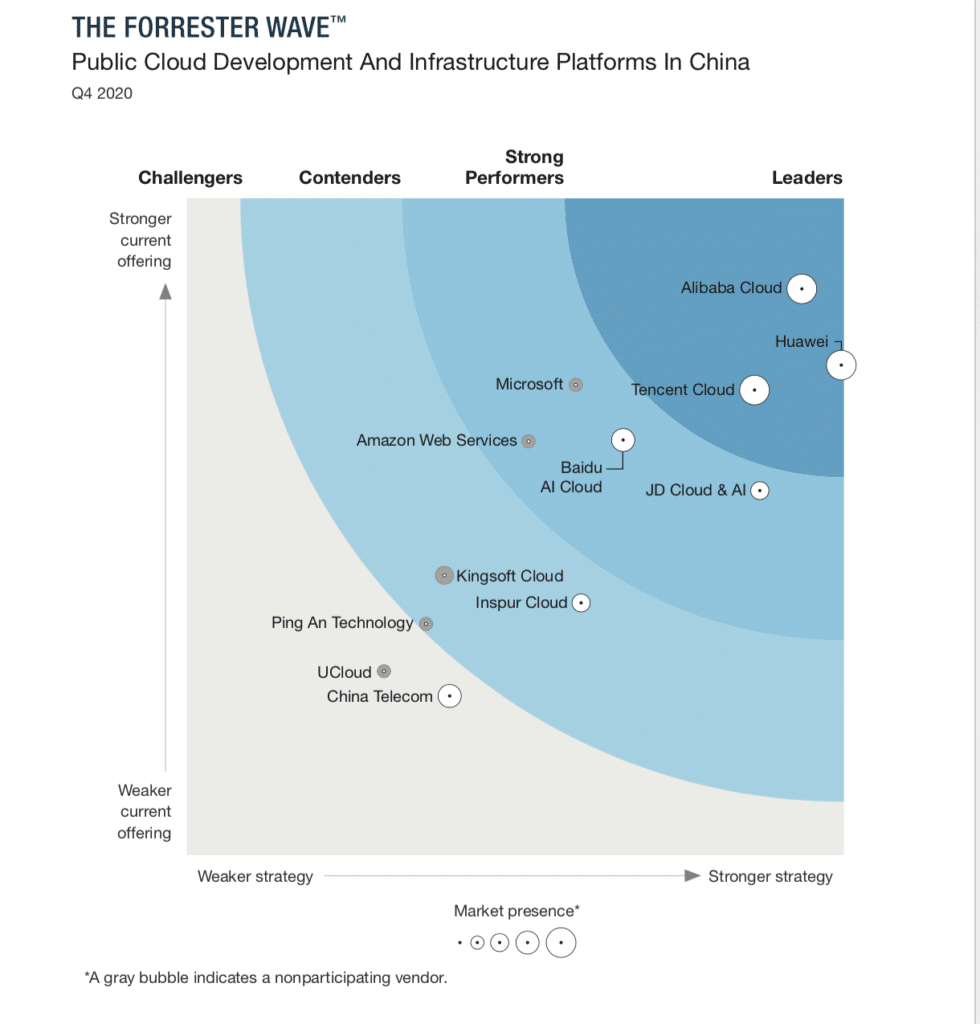by Yuchuan Wang
At Global Smart Supply Chain Summit held by JD Logistics on October 22nd, Zhenhui Wang, CEO of JD Logistics, announced that a city-level autonomous delivery robot project is being operated on a daily basis in Changshu, Jiangsu province, a top 5 county-level city by GDP in China. JD plans to put 100 autonomous delivery robots into operations in the city by the end of this year to facilitate Changshu in building smart city.
The robot drives itself, unsupervised, from JD’s delivery station loaded with parcels and plans its own route based on the parcels’ addresses. It will send messages or phone calls to recipients with a verification code so that they can pick up their packages. It waits a certain amount of time at every stop, such as a residential compound or an office building, before moving on to the next stop.
According to the State Post Bureau of China, as of October 18th, China has delivered over 60 billion packages in 2020. Thirty-eight days prior, the number was only 50 billion. Nearly 50% of couriers in China work 10 to 12 hours a day. As the delivery amount skyrockets, automated solutions are considered a viable way to ease the stress of both the industry and couriers.
JD debuted its very first autonomous delivery robot in September 2016. After years of research and iterations, JD Logistics revealed its 4.0 robot last year and became the world’s first company to apply Level-4 autonomous driving technology on public roads without any human interaction. In February this year, this robot was put into use in Wuhan, the epicenter of the COVID-19 outbreak in China, to ensure contactless delivery from delivery station to hospitals and residential compounds. During its 107-day deployment, the robot traveled over 6,800 kilometers and delivered more than 13,000 packages.
The core of JD’s autonomous delivery robots is the autonomous driving system developed in-house and its arithmetic logic unit which has lowered the power consumption to 10% of the industry average, and is equivalent to that of a standard lightbulb.
JD also researched a cloud simulation platform which has accumulated the historical operations data and is able to discern how the robot should behave in numerous traffic scenarios which largely raises the vehicle’s ability to drive safely on open roads.
In addition, JD also launched a delivery robot “adoption plan”. In Changshu, couriers can apply to adopt the delivery robots to facilitate their work. “We expect JD’s delivery robots to largely improve couriers’ working efficiency and enable them to have more time to provide more caring and customized services to consumers, transforming their job from operations to management,” said Qi Kong, Chief Scientist and head of Autonomous Driving at JD Logistics.
Jie Wang is a courier at JD’s Dongnan delivery station in Changshu. He adopted a delivery robot in August. He said that by employing the robot for part of his deliveries his monthly salary increased by over 30% in September alone. “It saved me plenty of time for delivery so that I am now able to put more of my attention on parcel collection,” said Wang.
Jie Wang, JD courier
“We will continue to increase the investment in logistics technology and we will also make logistics technologies available to the general public, facilitating social infrastructure upgrades,” said Zhenhui Wang, CEO of JD Logistics. “In terms of the application of technology, more than 100,000 robots will join our family in the next five years, greatly enhancing the customer experience and alleviating the workloads of our front-line brothers and sisters.”

